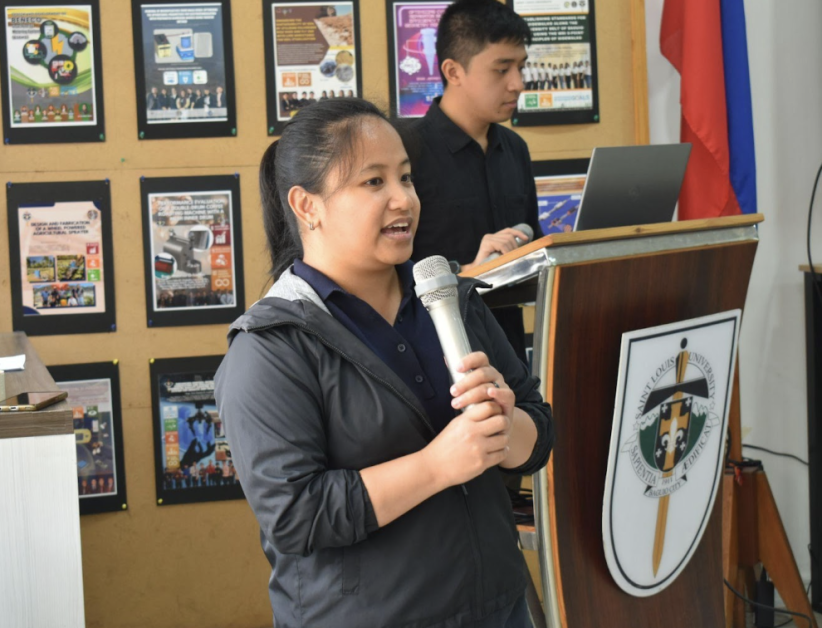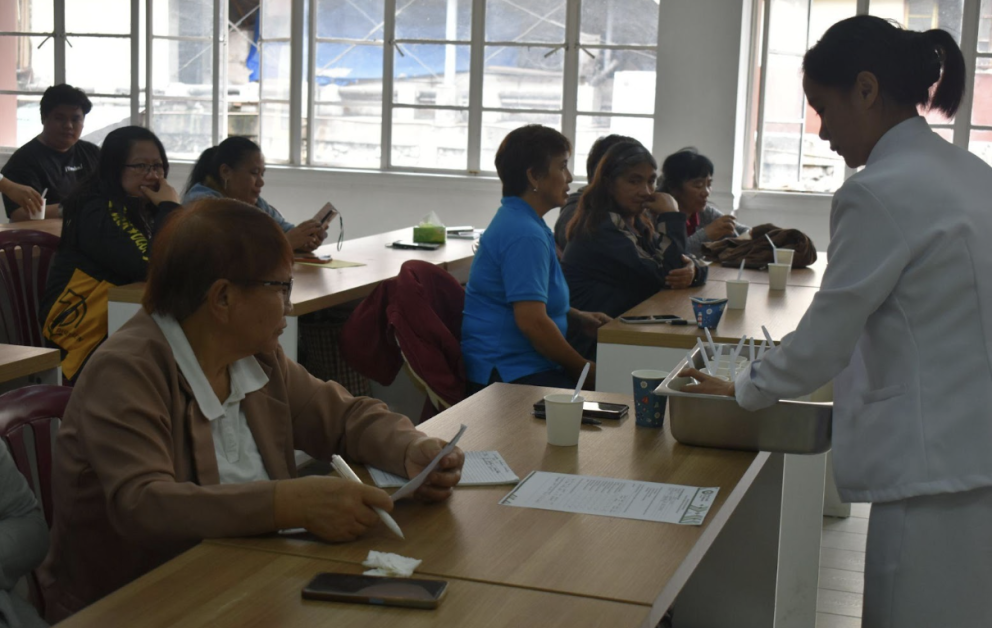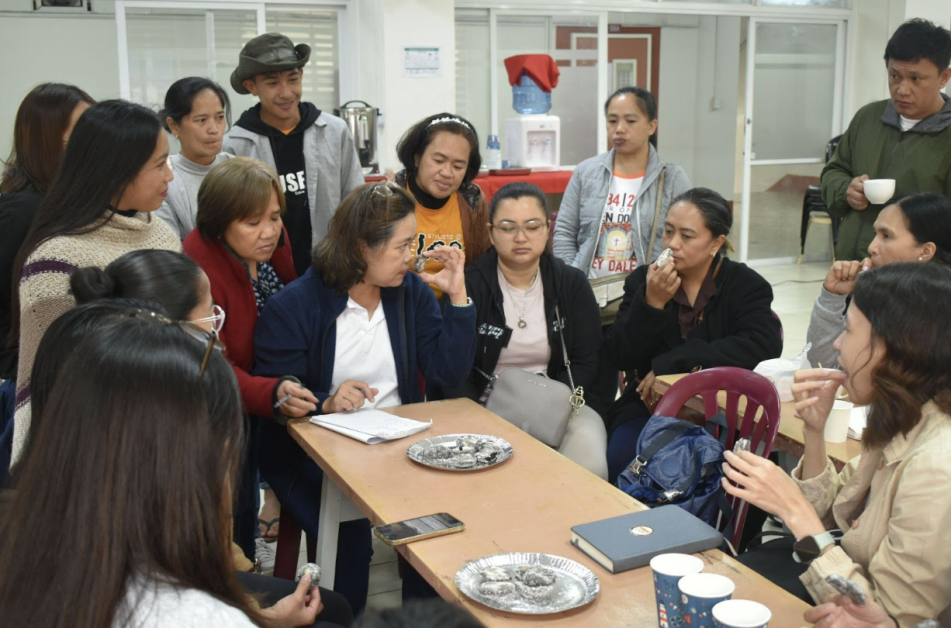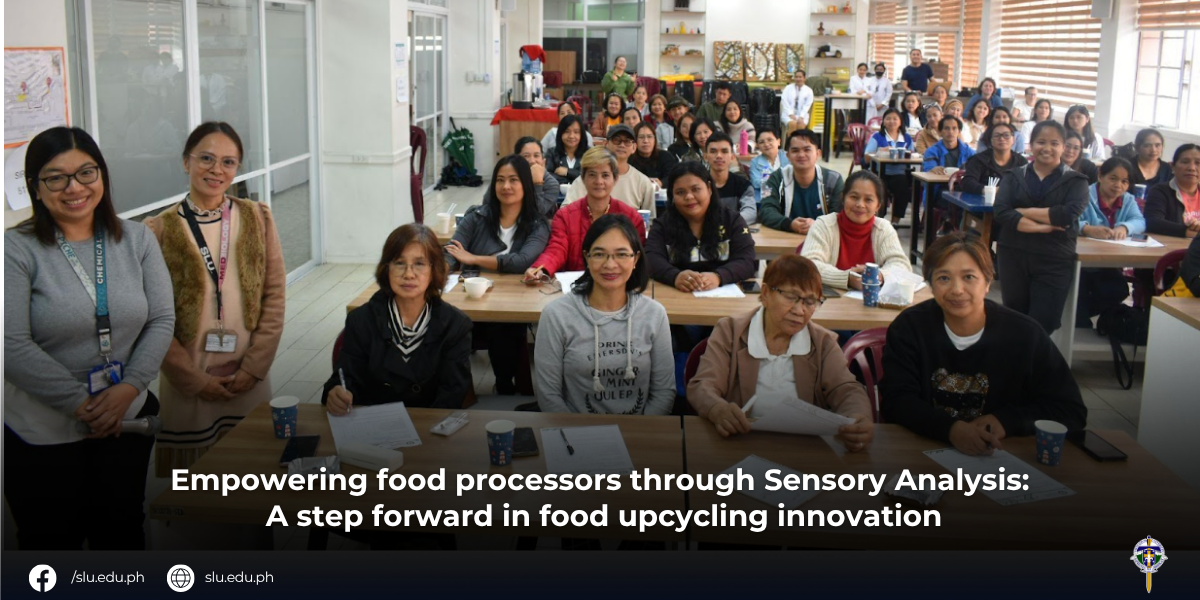The Flemish Interuniversities Council University Development Co-operation or Vlaamse Interuniversitaire Raad Universitaire Ontwikkelingssamenwerking (VLIR UOS) Ghent University–Saint Louis University (SLU) Food Upcycling Project Team, in partnership with the Department of Trade and Industry (DTI) in the Cordillera Administrative Region, spearheaded a Sensory Analysis Training Workshop on 10 July 2025, at SLU’s Incubator for Research, Innovation & Business (SIRIB) Center, Otto Hahn Building, SLU Main Campus.
The workshop is part of the internationally funded VLIR-UOS Ghent–SLU Food Upcycling Project, implemented in cooperation with the University Research Innovation Center (UnRIC). The initiative aims to curb post-harvest losses in the Cordillera region through sustainable food innovation and capacity building.
“[A] product is more than just sensory attributes,” said Prof. Dr. Ir. Joachim Schouteten of Ghent University, Belgium who served as the resource speaker. An expert in sensory analysis and consumer research, Dr. Schouteten delivered a lecture on evaluating food products through the five senses, factors affecting sensory perception, and the examples of best and poor practices for food processors.
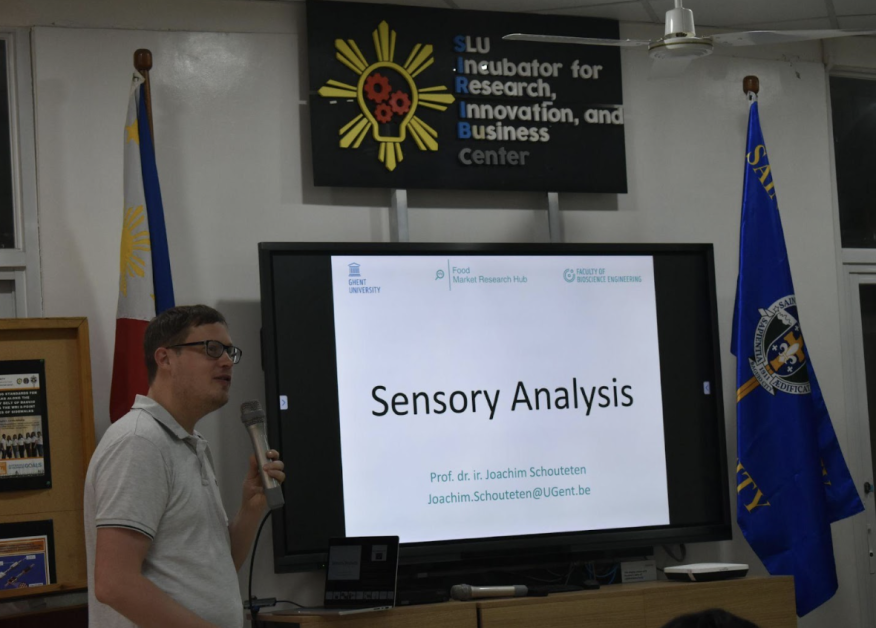
Following the lecture, Mr. Simoun Bayudan and Ms. Mary Luz Fiangaan facilitated a workshop and hands-on activity where participants, divided into groups, rated food samples based on appearance, smell, flavor, taste, and texture.
The training emphasized the importance of consumer perception in food product development. By applying sensory analysis tools, participants learned how to improve the acceptability and marketability of upcycled food products.
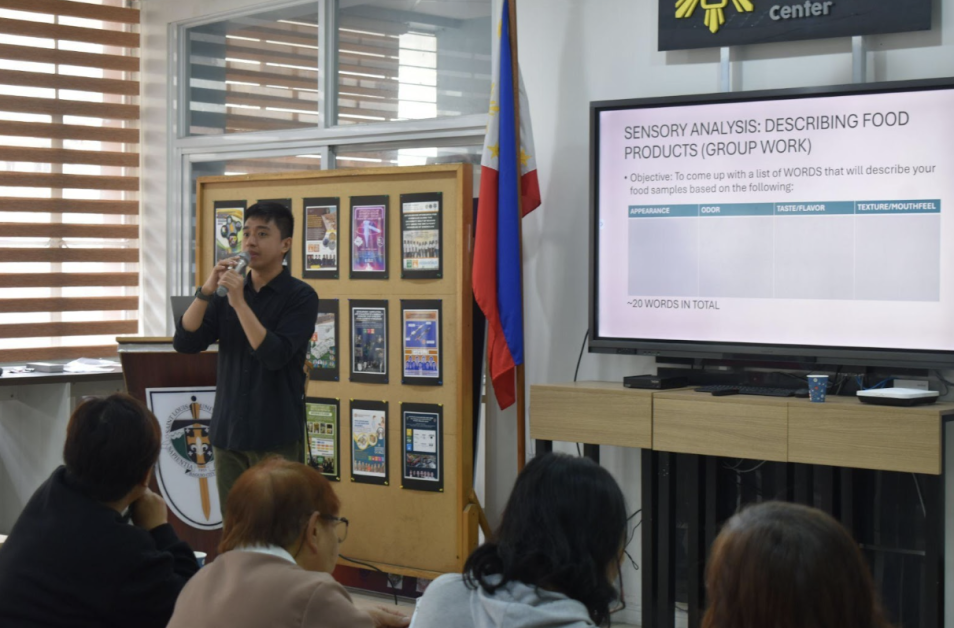
More than 70 participants joined the event, including food processors, DTI representatives, Benguet State University – Agribased Technology Business Incubator (BSU-ATBI/IC) staff, SLU faculty and researchers, and project collaborators from Ghent University.
By strengthening local capacity in sensory analysis, the VLIR-UOS UGhent–SLU Food Upcycling Project supports SLU’s commitment to the United Nations Sustainable Development Goals, specifically SDG 2 (Zero Hunger) and SDG 12 (Responsible Consumption and Production).
As the region continues to confront agricultural waste and food insecurity, the training underscores the importance of capacity-building efforts that bridge science, community, and market relevance. With continued support from academic and international partners, the Cordillera’s Food Upcycling journey is poised for success. (Article and Photos by UnRIC)


